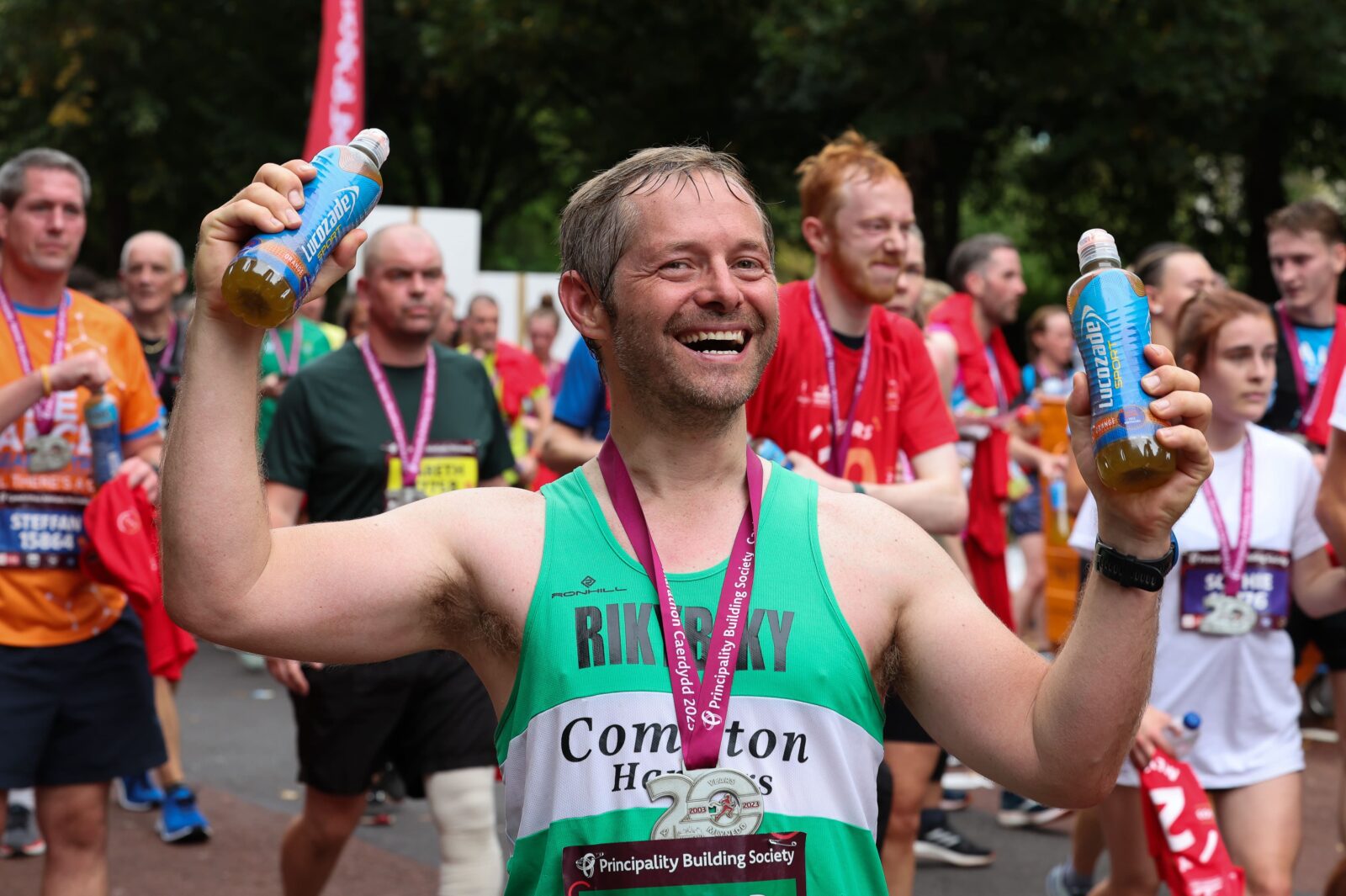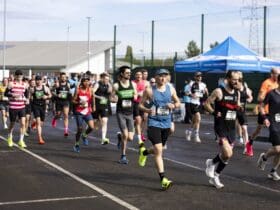When it comes to running longer distances, it’s important to have an effective fuelling and hydration plan in place to keep you going.
While you don’t need to worry too much when it comes to completing a 5K or 10K, you need to make sure you have enough energy if you’re going to be on your feet for a long period of time.
Run 4 Wales Race Director, Steve Brace, is a double Olympian having represented Great Britain in the men’s marathon in the 1992 and 1996 summer Olympics. He’s also a former winner of the Paris and Berlin Marathon, and ran his marathon PB of 2:10:35 in Houston in 1996.
He said: “We get our energy from fats and carbohydrates, but it’s your carbohydrate stores which provides a release of energy to fuel your endurance performance. Your body is able to hold carbohydrate stores to sustain around 90 minutes of strenuous activity, which means you’re going to need to top up your levels if you’re going to be running for longer.
“Hydration is also vital, especially when exercising, as you’ll be losing more water than you normally would through sweat. Not having enough water can lead to muscle cramps, dizziness and even heat exhaustion and it can often cause the heart to work harder to circulate blood around the body. On an average day it’s recommended you should drink around eight glasses of water (2 litres), but this should increase when you exercise – or for the boffins that’s about 1ml of water for every calorie you burn.”
Across Run 4 Wales’ events there are always multiple fuelling stations stocked up with Brecon Carreg water and High 5 electrolyte tablets. High 5 energy gels are also available during the longer distance events too – the Principality Cardiff Half Marathon and ABP Newport Wales Marathon and Half Marathon.
Here Steve shares his advice when it comes to fuelling during training and on race day:
Before you run
If you’re running at a big event like a marathon or half marathon, you should think about carb-loading. Many people think that as you taper and start reducing your mileage, you should be reducing your food intake to match – but this isn’t the case. Instead, two days before, increase your carb intake by 8-10g per kg of body weight. This can be hard as carbohydrate rich foods are usually quite bulky, but aim to get as close to that as possible – potatoes, sweet potatoes, rice, pasta, bread and whole grains are excellent energy sources.
The night before your race remember not to overeat. Your meal should be small but high in carbs and allow yourself plenty of time to digest so you don’t wake up feeling too heavy. On race day itself make sure you’re fuelling with a decent breakfast that is light, but high in carbs two-three hours before the race. For example, a bowl of porridge, peanut butter on toast, a bagel or pancakes. You could also opt for a carb drink too.
During your run
The best way to get carbohydrates quickly while exercising is through energy drinks, gels and bars. Look to take on your first piece of fuel around the 45-minute mark and then every 30-45 minutes throughout to ensure your energy levels don’t deplete.
Staying hydrated is also essential as you can lose around a litre of fluid for every hour of exercise. If this isn’t replaced you can see your performance level start to drop. While it’s important to take small sips of water at regular intervals, having an electrolyte tablet mixed in will also help to replenish those salts and minerals that your body loses through sweat.
After your run
Post-exercise nutrition is also crucial in helping to aid your muscle repair and recovery. Replacing those lost carbs and also eating some protein will help with this process and top up your glycogen stores. It’s also important to take on fluids to rehydrate your body for maximum benefit. For many people they may not find themselves hungry after a race, so refuelling through a liquid, like chocolate milk or a High 5 recovery drink, could be a good option.
Other things to remember:
Don’t try anything new on race day. Race day is not the time to be trying anything new, so don’t go trying a new breakfast option or grabbing drinks or gels that you haven’t tested during your training runs. The best thing to do is to look up what will be provided during the event ahead of time and allow yourself a chance to try them out to see if they agree with you. At our Run 4 Wales events we use High 5.
Caffeine. A moderate dose of caffeine can help to stimulate the body’s nervous system and make you more alert. It can also make running feel easier which can help to improve your performance. A lot of energy gels already contain caffeine within them. However, it is important to only use these if you know caffeine agrees with you and you aren’t sensitive to it.
To find out more about the events in the 2024 Run 4 Wales calendar, including the ABP Newport Wales Marathon, half and 10K, Brecon Carreg Cardiff Bay 10K, Ogi Porthcawl 10K, CDF 10K and the Principality Cardiff Half Marathon visit: run4wales.org/events/









Leave a Reply
View Comments